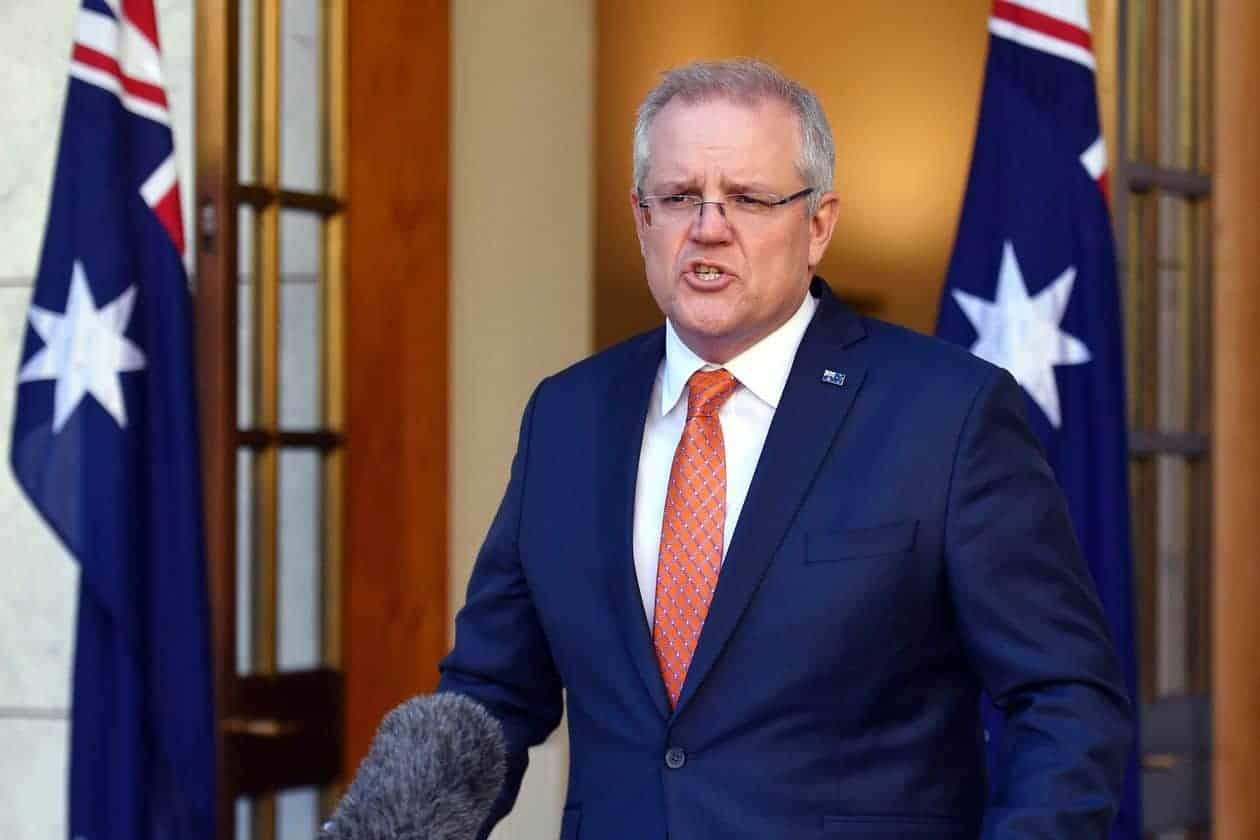Australia Suspends Extradition Treaty With Hong Kong Over China’s National-Security Law

Australia is suspending its extradition treaty with Hong Kong and giving the city’s residents a pathway to staying permanently in response to China’s decision to impose new national-security legislation, a move likely to further inflame tensions with Beijing.
Prime Minister Scott Morrison said Thursday that the national-security law constituted “a fundamental change of circumstances in respect to our extradition agreement with Hong Kong” and that Australia had formally notified Hong Kong and Chinese authorities of the decision.
He also said about 10,000 Hong Kong residents in Australia on student or temporary work visas would be offered the chance to extend those by five years, with a pathway to permanent residency at the end of that period.
Countries worried about the law, which has increased the power of Beijing’s security forces in the former British colony, have made a series of responses. Last week, Canada suspended its extradition treaty with Hong Kong, while the U.K. is offering a path to citizenship for as many as three million Hong Kong residents. New Zealand said Thursday it was reviewing its relationship with the city, including extradition arrangements, controls on exports of strategic goods and travel advice.
“There’s clearly close coordination between the Five Eyes countries on this,” said Michael Shoebridge, a former top Australian defense-intelligence official, referring to an intelligence-sharing network among Australia, Canada, New Zealand, the U.K. and the U.S.
“The new laws Beijing has imposed on Hong Kong are even more repressive than the security laws on the mainland and subject Hong Kongers to arbitrary detention and arrest. So, if Australia is to be consistent on extradition, we must end extradition to Hong Kong,” said Mr. Shoebridge, a director of defense, strategy and national security at the Australian Strategic Policy Institute, a security think tank. Australia doesn’t have an extradition treaty with Beijing.
New Zealand’s foreign minister, Winston Peters, said China’s decision to impose a national security law on Hong Kong “has fundamentally changed the environment for international engagement there.”
A spokesman for China’s Foreign Ministry said Australia’s moves violate international law and interfere with China’s internal affairs. “The Chinese side does not buy this and expresses its strong condemnation and reserves the right to react further,” Zhao Lijian said at a regular ministry briefing.
The stakes are especially high for Australia because of the importance of its economic relationship with China, its biggest two-way trade partner. Australia also has a substantial stake in Hong Kong’s success. The city is home to its largest commercial presence in Asia and one of its biggest expatriate communities globally.
Australia’s foreign-affairs department issued earlier Thursday a do-not-travel warning, its highest alert level, advising its citizens not to travel to Hong Kong because under the law they could be deported or face transfer to mainland China for prosecution under mainland law.
Around 100,000 Australians live in Hong Kong and around 96,000 people born in Hong Kong live in Australia. Among Australia’s exports to the city are food and beverages for its hotel and restaurant sector, including wine, seafood and dairy products, according to trade officials.
The city is also a regional hub for institutional banking. A spokesman for Commonwealth Bank of Australia, which has about 80 staff in Hong Kong, said it is maintaining close contact with its team in the city following the new travel advice. “The safety and well-being of our people is always our primary focus, so we have been monitoring developments in Hong Kong closely,” he said.
Tensions with Beijing have been increasing in the past couple of years, as Australia has tightened counterespionage laws—making foreign interference in politics a criminal offense—and banned Chinese telecom companies Huawei Technologies Co. and ZTE Corp. from its next-generation 5G mobile network over cyberspying concerns. The companies have long denied that their equipment poses any security risk.
The relationship further deteriorated in May when Beijing, responding to Australian calls for an investigation into its coronavirus response, imposed tariffs on Australian barley, and threatened to boycott Australian meat and wine and cut off visits by Chinese tourists and students.
Beijing has previously denied any efforts to influence Australian politics.
Photo: Australian Prime Minister Scott Morrison says about 10,000 Hong Kong residents in Australia would be offered a chance to extend their visas. - PHOTO: MICK TSIKAS/ASSOCIATED PRESS




